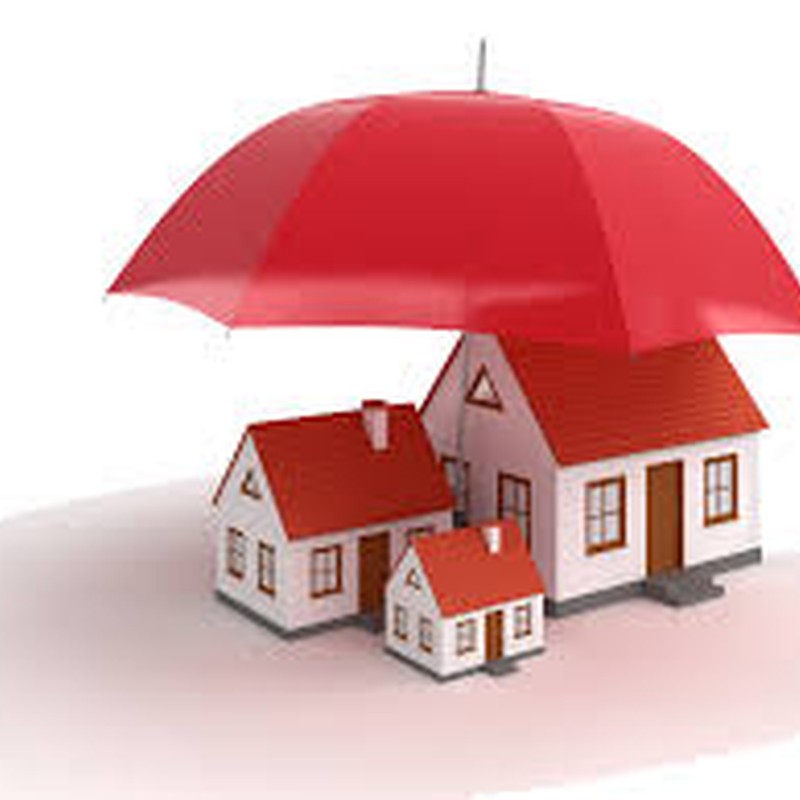Protect Your Biggest Asset – Your Home
Mon Oct. 7th 2019
As a newly minted homeowner, you probably know how important insurance cover is, for your house and its contents, and for your mortgage repayments. Your home is likely to be your biggest asset, and you'll want to protect it if the worst happens – to you, your partner or to your home.
Insurance that covers the real value
As a newly minted homeowner, you probably know how important insurance cover is, for your house and its contents, and for your mortgage repayments. Your home is likely to be your biggest asset, and you'll want to protect it if the worst happens – to you, your partner or to your home.
You may already have insurance on your mortgage, but there's so much more at risk that those repayments. Here are some aspects of insurance you might need to think about.
Types of cover to protect your investment
When you own a home, and you're paying off a mortgage, there are several kinds of insurance that protect your investment from unexpected events.
Insuring 'bricks and mortar'
House insurance is your first step toward protection. Remember that this covers the actual building, and not the contents. You can choose full replacement cover, although it's likely to be expensive and some insurance companies don't offer that option any longer. It's more common for homeowners to set the value of their homes, and purchase insurance to that capped level.
If you aren't sure of your home's value, use IAG's calculator at need2know.org.nz. You could also pay for a valuer to get a current price. Put your home value too high, and you'll pay more for insurance than you need to. Too low, and you'll be seriously out of pocket should disaster strike. Also, with the volatility of New Zealand's house values, and in case you do any upgrades or renovations, it's a good idea to review your house insurance once a year, and make adjustments if you need to.
Insuring your possessions
If bad things happen to your house – fire, flood, earthquake – you can be fairly sure that your contents will be damaged or destroyed too. Contents insurance covers this, and most insurance companies give better deals if you bundle your insurances together. Again, it pays to set a realistic value, and review it annually. Have you bought a new smart TV? Inherited your grandmother's silver cutlery or crystal glassware? Invested in quality kitchen appliances? Make sure these special possessions are listed on your policy.
Life insurance
You never know what the future holds. In case you fall fatally ill or get hit by a bus, term life cover will pay out a sum when you die. That way your family isn't left with unpaid debts along with the loss. You can keep paying for this insurance as long as you like, but the premiums will rise as you get older. If you get to the point where your children are grown and self-sufficient, and you've paid off your mortgage, you can cancel the policy and save the cash for other expenses.
Insure your mortgage repayment
If you've taken on a whacking big mortgage, this kind of insurance is good to have. If you get hit by a bus, the mortgage is wiped out and your family won't be faced with a move into rental accommodation after losing you.
Trauma cover
Mostly these days, medical advances mean we don't die outright after an accident or illness. However, you may be unable to work, and depending on the terms of your policy, trauma insurance will pay your debts so you can relax and recover.
Disability cover
If an accident or illness will keep you from working for the rest of your life, disability insurance will pay out a lump sum, so you can get treatment, make your house more accessible and pay off debts.
Protect your income
If your income is vital to your family's standard of living, this is an important insurance to have. If you're unable to work due to accident or illness, you'll get a fixed benefit or a percentage of your income every month, depending on your policy terms.
Pay for the funeral
Let's face it – even the most basic funerals are expensive. Let your family relax and grieve without worrying about how they're going to pay for your send off. You can get a policy that matures when you reach a certain age, and sits there ready to see you out when you go.
Which insurances are for you?
Life is risky, so to protect yourself, your family and your property, there are some things you need to consider. Ask yourself:
* If you die or are disabled, what happens with the mortgage? What other debts do you have? Could your family cope?
* Do you need to keep your home for your family if the worst happens?
* Do you have any spare cash? Can you afford the premiums?
Answer these questions, and you'll have a much better idea how much cover you'll need, and can afford. It's well worth the exercise for the peace of mind you and your family will gain.
Accident Compensation Corporation – accidents only
We have ACC in New Zealand, but it still might be a good idea to get personal insurance. ACC only covers accidents, and it pays out 80% of your income but frequently only for a limited period.
ACC doesn't come into it if illness or a medical problem keeps you off work, so you need personal insurance – like income protection – or your family will just have a sickness benefit to live on. Will that cover your mortgage?
A sickness benefit is same for everyone, and takes no account of your previous income or your debts. Without personal insurance cover, you may be forced to sell your home.
Where do you start?
You could go to your bank, although what most banks offer is limited. You could go straight to an insurance company – you probably have car insurance already, and bundling other insurances with the same company could save you a lot in premiums. Some companies offer free quotes, and Consumer NZ has lots of good advice for members on its website.
However, you might not even know what insurances you want. In that case, it's a good idea to talk to a financial advisor. Their commissions come from insurance companies, so they can offer their services free to clients. An advisor can help you choose the cover you need, and wade through the fine print and technical terms. At the other end you can hand over the management and paperwork of claims – especially welcome when you're under stress.
Protect your family – cover your bases
Life is inherently risky, and no-one can see into the future. Now you have a large asset like a family home, and an equally large mortgage, do you really want to put your family's future lifestyle in jeopardy? It would be hard enough for them to lose you, or to deal with the stress of damage to their home and possessions. Facing major debt, losing their home altogether, and having to subsist on a sickness benefit because you didn't have enough insurance could be unthinkable.
Give yourself peace of mind and cover as many bases as you can, so that should the worst happen – whether it's a natural disaster or a sudden illness – you know your family will be taken care of.
Thinking about protecting your home and family? Talk to a financial advisor at Cave Financial today.

Need our help?
We're here to answer your questions.
service@cavefinancial.co.nz
09 302 7310
1D Roberta Avenue
Glendowie
Auckland 1071
New Zealand


